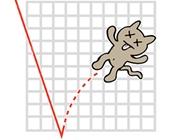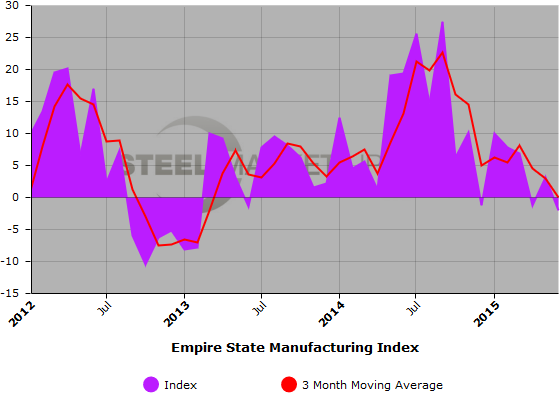Market Data

June 15, 2015
Optimism Waning in Empire State Manufacturing Survey
Written by Sandy Williams
The Empire State Manufacturing Survey headline index surprised economists by falling five points to -1.98 points in June. The consensus was for an increase of 6 points in the general business index, according to Bloomberg, and is the second negative reading in three months.
The new orders index for New York manufacturers fell six points to -2.1. Shipments remained little changed at 12.0 indicating a steady growth.
The unfilled orders index rose 7 points but was still at -4.8 indicating a small decline. Inventory levels and delivery times showed little change.
Input prices rose modestly and selling prices were flat in June. Employment levels picked up slightly as did hours worked. The indexes registered at 8.7 and 3.9, respectively.
Manufacturers were less optimistic about future general business conditions during the next six months. The Index fell four points to 25.8. Future inventory levels are expected to decline and prices remain relatively unchanged. The future employment index registered a positive 13.5, declining for the third month but still indicating an increase in manufacturing employment.
The indexes for future capital expenditures and technology spending both fell in June with technology in negative territory at -1.0.
The Empire State Manufacturing Survey is conducted monthly by the Federal Reserve Bank of New York.
SMU Note: Below is a graphic showing the Empire State Manufacturing Index history. To use the graphs interactive capabilities, you must view it on our website. You can do this by clicking here. If you need help navigating the website or need to know your login information, contact us at info@SteelMarketUpdate.com or by calling 800-432-3475.








